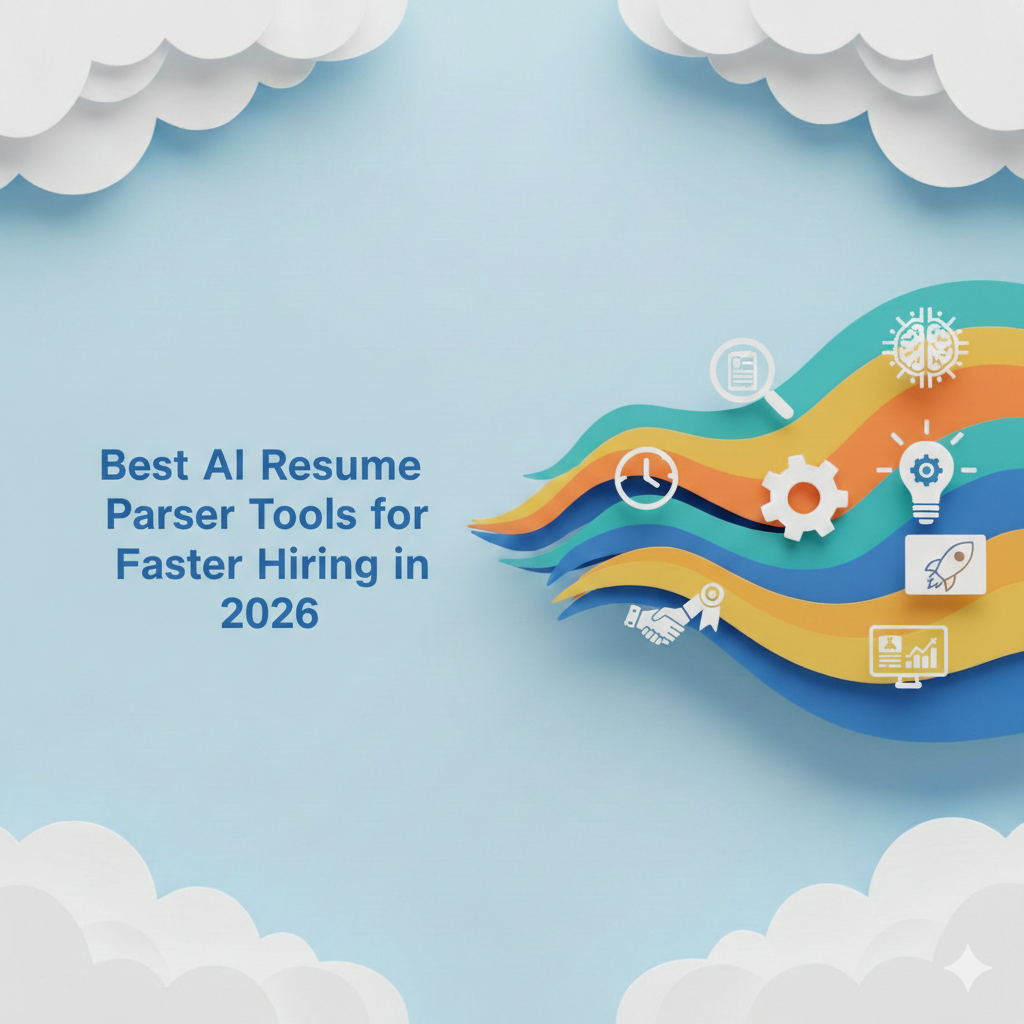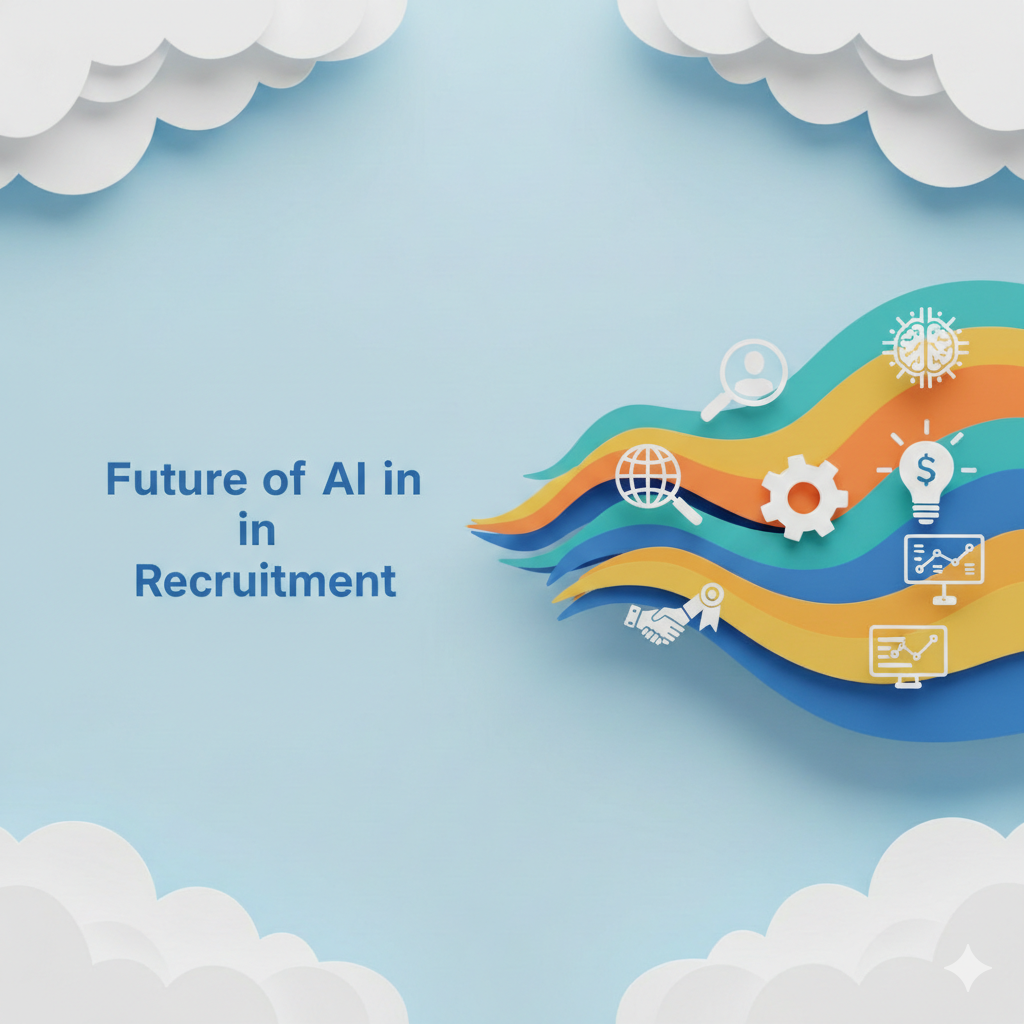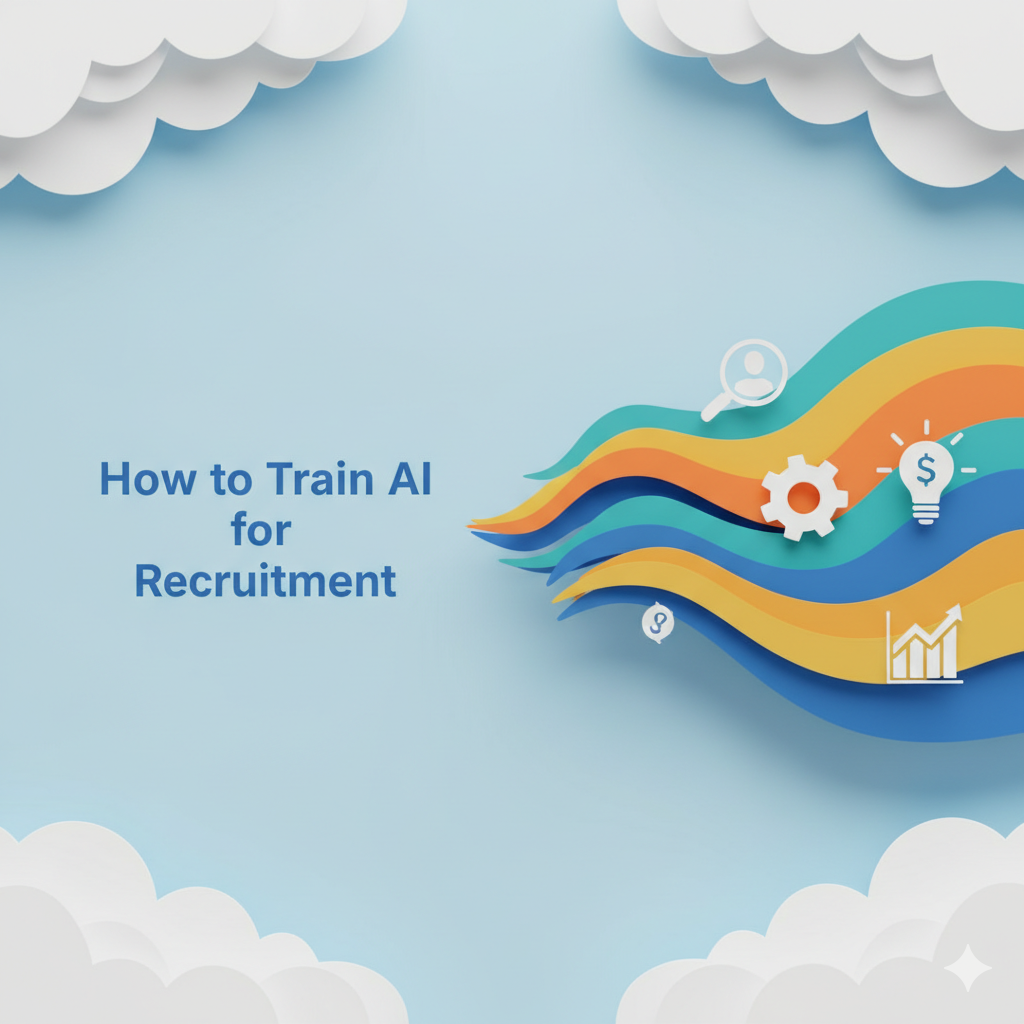AI Recruiting Software for Startups: Boost Hiring Efficiency with Ease

Hiring as a startup isn’t just about filling seats, it’s about building the right foundation with limited time, budget, and resources.
But what if you didn’t have to do it all manually?
AI recruiting software takes the pressure off your team by handling tasks like screening, scheduling, and candidate messaging. Platforms like HRMLESS let you automate repetitive steps, so you spend more time making great decisions, and less time chasing no-shows or sorting resumes.
Whether you’re scaling quickly or making your first few hires, these tools help you move fast, stay organized, and find better candidates without adding complexity. For a lean team, that’s a game-changer.
In this blog, we will cover:
- What AI recruiting software is and why it’s ideal for startups
- Key features that save time and improve candidate quality
- How to choose and implement the right tool for your hiring goals
Let’s break it down!
What Is AI Recruiting Software for Startups?
This software uses artificial intelligence to handle tasks like screening candidates, scheduling interviews, and keeping candidates engaged. It saves you time, reduces bias, and speeds up hiring. Startups get tools that grow with their needs and bring smart automation to every step of hiring.
Defining AI Recruiting Tools
AI recruiting tools automate parts of your hiring process.
They screen resumes, conduct initial interviews, and score candidates based on your criteria. This means you spend less time sorting through applications.
You can also automate scheduling and send messages to candidates automatically. These tools work around the clock, so candidates apply and interview on their own time. AI software for startups helps you focus on the best matches.
How Startups Benefit from AI Recruitment?
Startups often have limited staff and tight budgets.
AI recruitment software helps you hire faster and smarter without extra hires. It reduces bias by using data, not gut feelings, to pick good candidates.
These software can save you about 2.7 hours per hire by handling repetitive tasks automatically. It scales easily when you hire more, so you never outgrow your system.
By staying in touch through SMS or email, you lower "ghosting" – when candidates suddenly stop responding.
AI vs. Traditional Hiring Methods
Traditional hiring is slow and involves lots of manual work, like reading resumes or calling candidates. AI recruitment speeds this up by using algorithms to screen and match candidates quickly.
AI tools reduce human bias by focusing on objective data, not personal opinions. They handle scheduling automatically, which cuts down on no-shows by 50%. Traditional methods often miss these efficiencies, leaving founders juggling multiple tasks.
With AI recruiting, you get a faster, fairer process so you can focus on building your startup.
Key Features of AI Recruiting Software
AI recruiting software helps you save time, improve candidate quality, and reduce bias. It handles many repetitive tasks, so you can focus on finding the best fit for your startup.
Automated Candidate Screening
Automated candidate screening sorts through large numbers of applications quickly.
It uses AI to evaluate candidates based on your job requirements without you needing to read every resume. You see only candidates who meet key qualifications. The software ranks applicants by score or fit, strengthening your shortlist.
By automating screening, you cut down on time spent on unsuitable resumes. It also reduces bias by applying consistent criteria to all candidates.
You get a faster, fairer way to weed out unqualified candidates.
AI-Powered Resume Parsing
AI-powered resume parsing instantly extracts important information like skills, experience, and education from resumes.
It converts messy formats into standardized data that you can easily review. Parsing saves you hours that you would spend manually reading and comparing resumes. The AI understands different resume layouts and finds the details you care about.
It can also match keywords to your job description, highlighting candidates who fit well. This speeds up your initial review, especially when you have many applicants for a startup role.
With this feature, your recruiting platform acts like a smart filter, keeping the best candidates visible and organized.
Intelligent Interview Scheduling
Intelligent interview scheduling automates booking interviews based on your calendar and candidate availability.
It removes back-and-forth emails and reminders. This feature reduces no-shows by only confirming with candidates who respond promptly. It also sends automated reminders to keep everyone on track.
Scheduling tools often integrate with your calendar apps and video meeting platforms. You can set rules like buffer times or limit interview slots, making your day run smoothly. This speeds up the hiring timeline for startups and keeps candidates engaged from the first step.
Automated scheduling saves around 2.7 hours per hire in manual coordination.
Predictive Analytics for Talent Acquisition
Predictive analytics uses data to forecast which candidates will perform best or stay longer.
It examines past hires, job success factors, and candidate behavior patterns. These insights help you make hiring decisions with more confidence. You can also identify potential problems early, such as candidates who are less likely to accept offers or those who may leave.
The data also reveals bottlenecks in your process, allowing you to improve speed and efficiency over time. By applying predictive analytics, you reduce guesswork and focus on hires that boost your startup's growth.
How to Choose the Right AI Recruiting Solution?
Picking an AI recruiting tool means thinking about what fits your startup's unique needs. You want software that connects with your current tools and grows with your company. Budget also matters, so you get the best features without overspending.
Assessing Startup Hiring Needs
Start by listing your hiring goals.
Do you need to fill many roles fast or find very specific skills?
This helps you choose software focused on speed or detailed candidate screening.
Look at your current pain points. Are you losing candidates to slow replies? Is bias creeping into your screening?
An AI system that automates interviews and scores candidates can fix these problems.
Think about the size of your team and open roles. If you’re small with just a few jobs, a simple, easy-to-use platform might work best. For growing startups, pick one that handles more candidates as you expand.
Evaluating Platform Integrations
Your new AI recruiting software should work smoothly with tools you already use, like ATS (Applicant Tracking Systems), calendars, or email platforms.
Check if the platform supports ATS and HRIS integrations. This connection lets candidate info flow automatically, saving you hours on manual entry. See if it offers automated scheduling that links with your calendar. This reduces no-shows by letting candidates book interviews when it suits them.
Look for SMS and email engagement features. These keep candidates active and reduce ghosting with quick nudges.
Budget and Scalability Considerations
Start with your budget but think beyond just cost.
Some AI recruiting platforms have different plans, like Launch, Growth, or Enterprise. Pick one that fits your current size but grows as you hire more.
A good platform saves money by speeding up hires and cutting no-shows. For example, software that saves 2.7 hours per hire lets you focus on other tasks.
Also, consider if the platform charges by users, jobs, or candidates. A flexible pricing model means you won’t pay for features you don’t need now but might want later.
Startup Hiring Without vs With AI: A Side-by-Side Breakdown
Still wondering if AI recruiting software is worth it for your startup?
Here’s the thing: hiring manually may work early on, but it quickly gets messy. From resume overload to ghosting and delayed decisions, traditional workflows slow you down. AI recruiting tools like HRMLESS eliminate the chaos by automating the most time-consuming tasks and making your process smarter as you grow.
Check out how manual vs AI-driven hiring really compares:
Hiring Task
Without AI Tools
With AI Recruiting Software
Resume Screening
Manual reading, inconsistent, slow
AI filters resumes instantly based on job match
Candidate Scoring
Gut-feeling or basic checklists
Smart scoring based on experience, keywords, and past success
Interview Scheduling
Back-and-forth emails, missed slots
Self-scheduling synced to your calendar with automated reminders
Candidate Engagement
Sporadic follow-ups, delayed replies
24/7 SMS/email nudges to keep candidates active
No-Show Management
High risk, manual rescheduling
Reduced by 50% with automation and timely reminders
Data Collection & Insights
Scattered notes, little visibility
Dashboards show funnel stages, drop-offs, and quality trends
Scalability
Hiring slows with each new role
Grows effortlessly with hiring volume
Bias & Fairness
Prone to subjective judgments
AI enforces structured, blind evaluations
Implementation Best Practices for Startups
To get the most from AI recruiting software, focus on preparing your team, protecting your candidate data, and making the system easy and useful for everyone. Clear steps in each area will help you hire faster and better.
Onboarding Your Team
Train your team on how the AI tools work and what to expect.
Show them how automated pre-screening and scoring save time by filtering candidates efficiently. Use real examples to explain features like scheduling and SMS engagement.
Assign clear roles so everyone knows who handles what, like reviewing AI-rated candidates or sending follow-ups. Encourage questions and create simple guides to reduce confusion. Regular check-ins during the first few weeks help catch issues early.
Your team needs to trust the software. Share how HRMLESS removes bias and speeds hiring; they see it as a helpful partner.
Ensuring Data Security
Protect candidate and company data by choosing software with strong security features.
Look for encryption during data transfer and storage to keep sensitive information safe. Limit access based on roles within your startup. For example, only hiring managers should see detailed candidate info. Enable two-factor authentication to stop unauthorized logins.
Review privacy policies before setting up. Make sure the AI provider, like HRMLESS, complies with local data laws. Regular audits and backups reduce the risks of data loss or breaches.
Optimizing Adoption and Usability
Start simple by integrating the AI tool with your existing ATS or HRIS systems.
Avoid overwhelming your team with every feature at once. Train them to use core functions, like automated candidate nudges and scheduling.
Gather feedback from users weekly in the early stages. Address any difficulties quickly to maintain confidence. Share success stories to motivate adoption, like reducing ghosting or cutting hiring time.
Use dashboards and analytics to track engagement and bottlenecks. This real-time data highlights where adjustments are needed and shows the software's impact on your hiring process.
Future Trends in AI Recruiting for Startups
AI recruiting is evolving quickly. You will see smarter tools, better ways to tailor the hiring process, and a stronger focus on fairness and ethics. These changes will shape how you attract, engage, and select candidates.
Emerging Technologies in Recruitment
New AI tools add speed and precision to hiring.
For example, voice analysis lets candidates answer questions naturally. This gives you more insight than text alone. Real-time analytics dashboards make spotting bottlenecks easier. You can watch how candidates move through your process and fix issues quickly.
Automation will expand. Chatbots and SMS engagement help keep candidates interested, reducing no-shows by up to 50%.
Personalization Through Machine Learning
Machine learning tailors hiring to each job and candidate.
It learns which skills and qualities lead to success, then scores candidates based on those factors automatically. You can send personalized interview questions or follow-ups based on candidates backgrounds. This keeps the experience smooth for both sides.
This approach helps more qualified candidates get through faster. It also lowers ghosting by keeping communication relevant and timely. Personalized AI makes you more efficient at finding top talent.
Ethical Considerations in AI Hiring
Using AI for hiring raises fairness questions.
You need tools that avoid bias, not reinforce it. Look for software that audits its algorithms regularly—transparency matters. Be clear with candidates about AI's role in your process. This builds trust and keeps your hiring honest.
Startups using platforms like HRMLESS can reduce bias with automated scoring and blind screening. This gives every candidate a fair chance, no matter their background.
Ethical AI hiring protects your company's reputation and creates a more diverse workforce.
The Bottom Line
Hiring doesn’t have to drain your time or your team.
With AI recruiting software, your startup can skip the slow steps and focus on what really matters: connecting with the right people, faster. From screening to scheduling, automation keeps things running smoothly, even when you’re wearing multiple hats.
Whether you're hiring your first employee or building a growing team, platforms like HRMLESS give you the structure, speed, and confidence to scale without the stress.
Want to spend less time chasing resumes and more time growing your business?
Book a demo with HRMLESS today, because smarter hiring starts with the right tools.
Frequently Asked Questions
Still figuring out how to make AI recruiting software work for your startup? Here are some helpful answers to questions other founders and hiring managers often ask, especially when starting small but aiming to grow fast.
What are the top-rated AI recruiting tools for startups?
The best AI recruiting tools offer automation for screening, scheduling, and candidate messaging. Look for platforms that include scoring systems, SMS/email reminders, and easy integration with existing ATS.
How can startups utilize AI in the recruitment process?
You can use AI to automate candidate pre-screening and schedule interviews. AI helps reduce ghosting by sending reminders and keeps top candidates engaged.
What are some free AI recruiting tools available for startups?
Some tools offer basic AI features like resume screening and scheduling at no cost. Free versions usually have limits but are good for startups testing automation.
Are there any specialized AI recruiting tools for small companies?
Yes, some platforms are made for small teams. They focus on ease of use, scalability, and fast setup so you can hire without needing a full HR staff.
How does AI recruiting software improve the hiring process?
AI speeds up hiring by automating repetitive tasks. It also improves candidate quality by filtering weaker applications early and reducing human bias.
What should startups consider when choosing an AI recruiting tool?
Choose tools that match your company’s size, budget, and hiring needs. Look for features like automated scoring, integration with your ATS, and multi-channel candidate engagement. HRMLESS sets up quickly and automates each step to save you time and reduce stress.
Featured
Subscribe to ournewsletter
Related posts
Explore the world of photography with our curated selection of
portfolio websites that showcase creativity and innovation.




